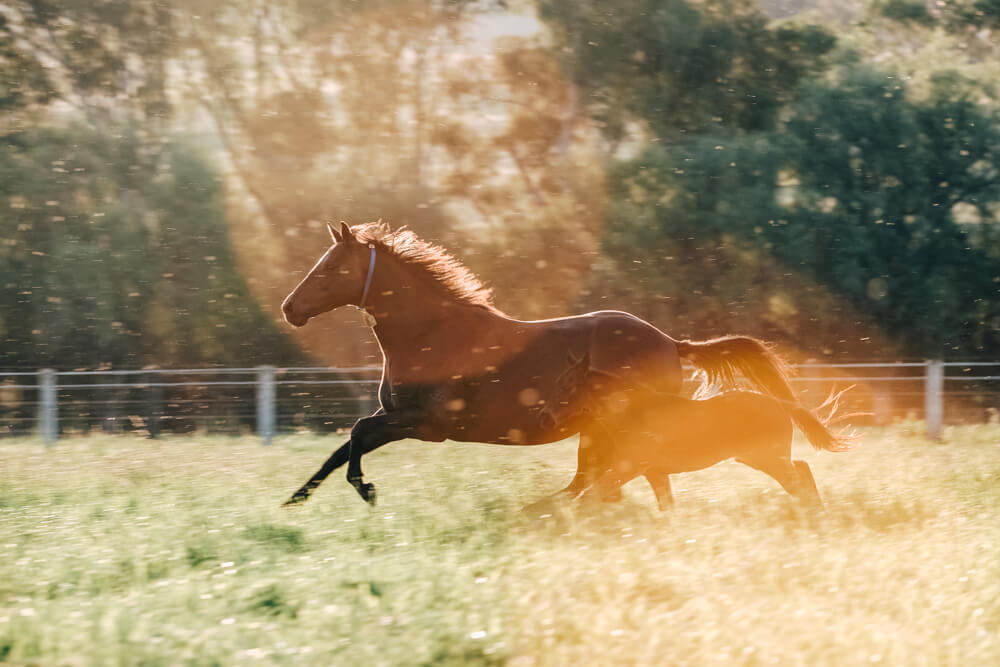Flight animals
Horses are prey animals, so they take flight as a form of protection; this is how they avoid being eaten in the wild. You can desensitise horses to this instinct, which is what trainers do in a racehorse’s early education. However, because it’s natural for a horse to run, this isn’t something a trainer has to teach them.
Horses cover great distances in the wild every day. One study showed that wild horses in Australia covered an average of 15.9km/day – and went an average of 2.67 days between watering.
Horses are physically built to gallop, and gallop fast. They have long, slender limbs attached to large bodies of muscle, which gives them their great power – and means that, as athletes, they surpass other animals of a similar body size.
Herd animals
Horses are also herd animals – they like to run in a group, similar to a race field. Sue M. McDonnell, PhD, is a certified applied animal behaviourist and the founding head of the equine behaviour program at the University of Pennsylvania‘s School of Veterinary Medicine; she writes in an article published in The Horse:
“In natural social contexts, horses do seem to “race” one another. Running and jumping in what looks like playful racing is a conspicuous aspect of play among juveniles, especially colts.
“Among adults, running occurs in a couple of contexts. Both males and females run to escape threats. Adult males also run when chasing or being chased by another male. In those natural social contexts, the behaviour seems to indicate that at some level that they have “won” or “lost”.
What’s it like for the horses?
Just like when humans exercise, racing and training can be hard work for horses, but because of the individual care and attention they receive, the stress induced by racing is similar to what human athletes endure.
They’re smart animals, and sociable too – meaning they can thrive in many different environments, including those provided for them by humans.
And, in many ways, it’s a life of luxury; personal grooming, expertly managed diets, physiotherapy, and swimming sessions. It costs between $30,000 – $70,000 per year to keep a horse in full training, depending on location, with daily access to a vet, annual dentist visits and a new set of shoes every four to six weeks.
And if you need further evidence?
You can see numerous examples of horses running without a jockey on board – they’re herd animals will naturally gallop with their pack…
Watch them go...
...or not!
A horse weighs half a ton, a human quite a bit less – and a jockey, less again. If horses really don’t want to do something, there’s not much a human can do. You can’t get any more convincing evidence that horses won’t be forced to run than these brilliant but stubborn, horses.
This horse, called Pakistan Star, emerges from gate No.5 and quickly decides that he doesn’t fancy it today (we’ve all been there!).
Champion sprinter Chautauqua is as famous for his talents as he was for his ability to make his handlers look silly. He won over $8 million in prizemoney, but when he didn’t fancy it, he simply wouldn’t race. There was nothing forced about it.
Chautauqua is now enjoying a new career as a show horse in the loving, expert care of former jockey Casey Bruce.








